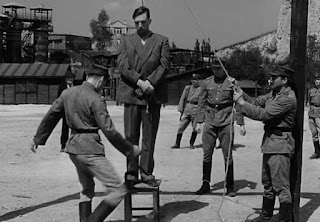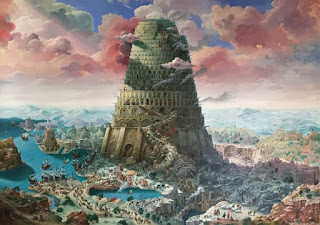Bayajidda, The Founder Of Hausa States
Bayajidda is arguably the most unique story of the Hausa people, despite it being considered a legend by most historians.
It takes a lot of weight knowing that this single individual has shaped the way the Hausa people view themselves as well as their common origin, myth or legend, the story of Bayajidda is indeed one that should be known.
Early Life:
Born Abuyazid (popularly called Abuyazidu) to the king of Baghdad Abdullah. However, not much is known about the origin of Bayajidda – being the dominant name of Abuyazid (translatable as ‘the father of Yazid).
It is said that when Queen Zidam conquered Baghdad, Bayajidda fled Iraq with forty servants to enter Nigeria through Lake Chad by the town of Ngala and arrive in Gazargamu which is present-day Borno state.
Occupation:
In the legend of Bayajidda, his occupation wasn’t the major crux of the story, but it can be understood that he enjoyed horse riding as well as hunting; as those were the tradition of most royals in that period.
Although his major occupation came much later in his life as he took the mantle of rulership in the city of Daurama, currently Daura of Katsina state.
When did Bayajidda Arrive Nigeria?
There are two stories as to what Bayajidda did when he arrived in Nigeria. In one story, when Bayajidda first came to Gazargamu (Borno state), having come from royalty with the technical know-how on warfare and people affairs, Bayajidda decided to dethrone as well as do away with the incumbent king he found at Gazargamu, seeing he had a superior force as compared to that of the king.
The news of this dethronement came to the king and he immediately consulted with his high chiefs and advisors and came to the conclusion
that he should give Bayajidda his daughter, Magaram (also known as Magira) in marriage.
This in effect worked as Bayajidda didn’t go ahead with displacing the king. In later years, when the king made new conquests of new cities, he convinced Bayajidda to give up his men to put up guard in these new cities and this drastically reduced the men that Bayajiida had.
When Bayajidda had realized that he was being tricked by the king, it was already too late for him to react with force as he only had a slave with him, together with his wife. He then fled the city of Gazargamu at night with his wife and a servant heading westward to Garun Gabas of present-day Hadeja region in Jigawa state (east of Biram).
How Bayajidda Founded the Hausa States:
Later, with the queen of Daura, Bayajidda had a son called Bawo, which meant ‘Give it back’, which was in response to Bagwariya – Bayajidda’s concubine -who also had a son fathered by him which she named him Karaf da Gari, or Karbagari which means ‘snatch the town’ in Hausa, this worried Daurama.
In a version of the legend, Bawo is said to have succeeded his father and had six sons who became the rulers of Daura, Katsina, Zazzau, Gobir, Kano and Rano. These, together with his half-brother Biram, formed the ‘Hausa Bakwai’. In other versions of the legend, they leave Bawo and Magaram out entirely, with Biram, Daura, Gobir, Kano, Katsina, Rano, and Zaria all being the sons of Bayajidda and Daurama.
However, Karbagari the son of the Gwari mistress also had seven sons, who were said to have ruled Kebbi, Zamfara, Gwari, Jukun, Ilorin, Nupe and Yauri which are referred to as ‘Banza Bakwai’ or ‘Illegitimate seven’. The historical Hausa kingdom began as these seven states were for founded by the Bayajidda legend and the six sons of Bawo and himself.
Legacy:
It can be argued that one of the foremost legacies of Bayajidda is the memory left at the Kusugu well, which nowadays is a tourist attraction site.
Another major legacy of Bayajidda would be the forming of the Hausa states by him and his progeny.
When Did Bayajidda Die?
Not much if at all any has been reported on the death of Bayajidda, but from studies, it can be understood that he lived quite a long life.
Controversy Regarding Bayajidda’s Life:
The major controversy in the Bayajidda Legend is to date the argument of historians as to the plausibility of the occurrence of such a figure, a major chunk of historians believe that he is just a mythical figure created to appease the Hausa folk, alongside the many inconsistencies in the folktale.
All that is said about him has been through the word of mouth, with the only record and most authentic source on Hausa history which was done by the then Prince of Daura, Alhassan AbdurRahman as requested by his father, the then Emir of Daura AbdurRahman Dan Musa.










Comments
Post a Comment